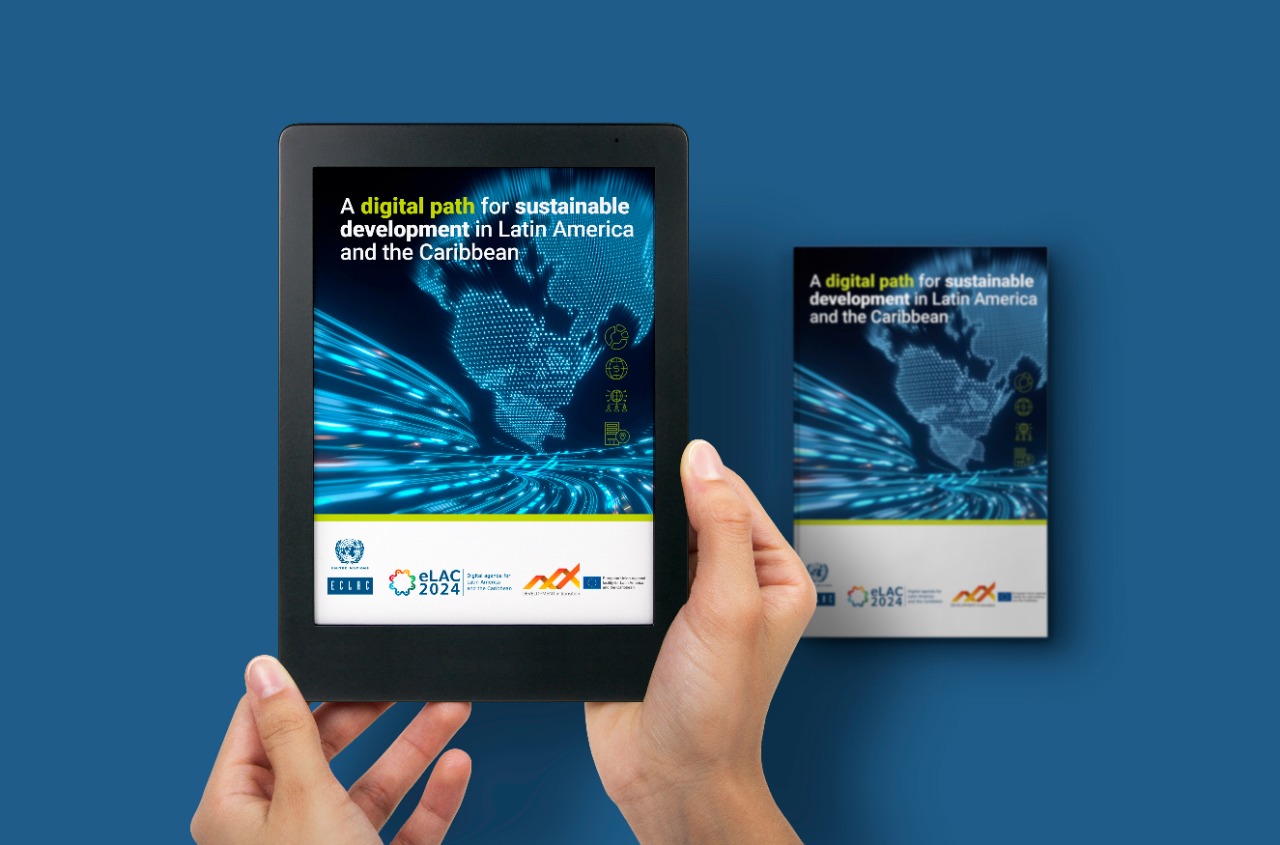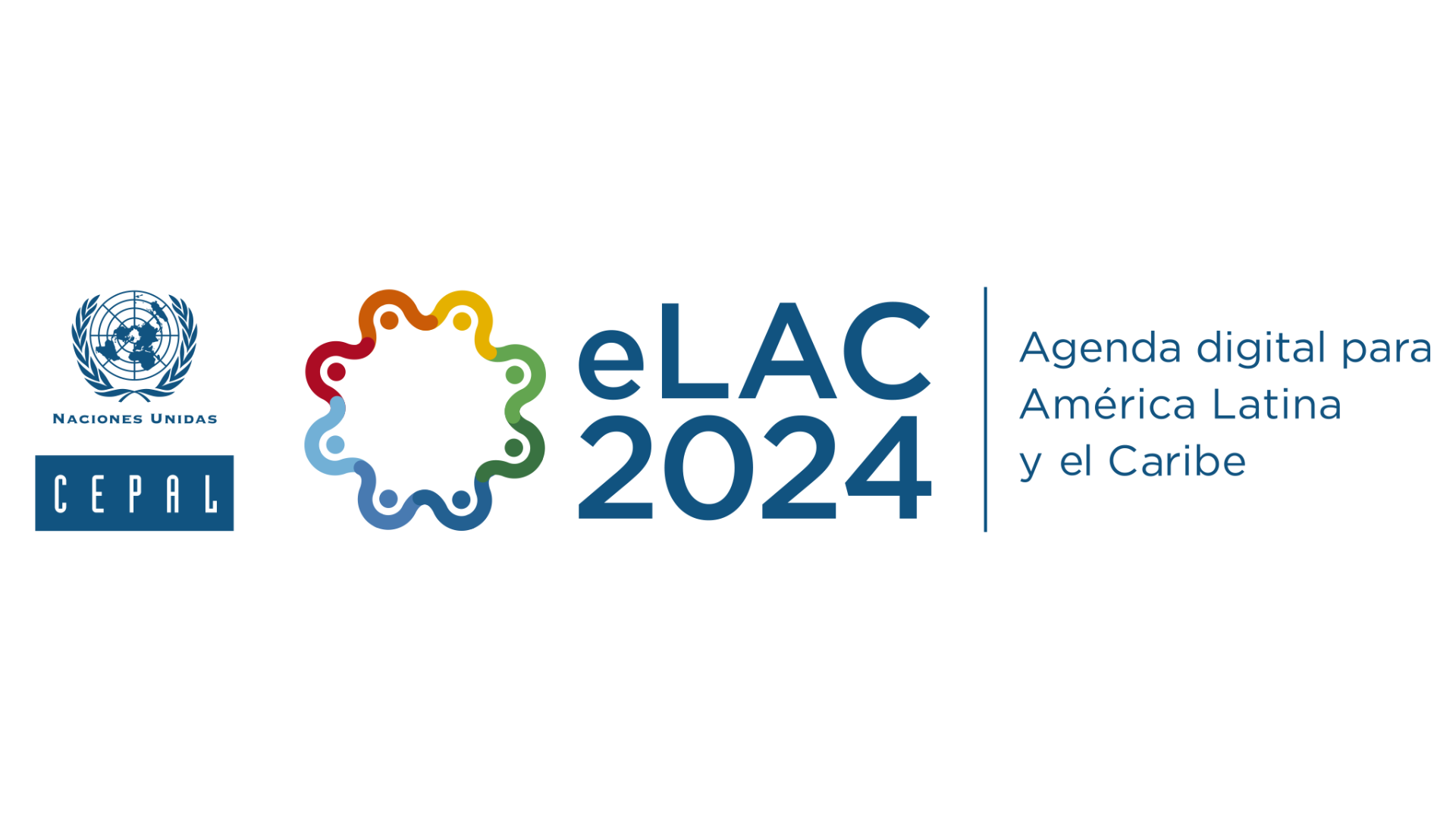ECLAC Proposes Measures and Actions for Moving Towards an Inclusive and Sustainable Digital Transformation
Work area(s)
The regional organization’s Executive Secretary, José Manuel Salazar-Xirinachs, presented today the main document of the Eighth Ministerial Conference on the Information Society in Latin America and the Caribbean, which is taking place through Friday, November 18 in Montevideo, Uruguay.

“The future is digital, and the longer that countries take to increase access and smart and massive use of the digital economy’s opportunities, the more they will delay harnessing its enormous benefits,” José Manuel Salazar-Xirinachs, Executive Secretary of the Economic Commission for Latin America and the Caribbean (ECLAC), emphasized today upon presenting the document A digital path for sustainable development in Latin America and the Caribbean, which guides the work of the Eighth Ministerial Conference on the Information Society in Latin America and the Caribbean, being held through Friday, November 18 in Montevideo, Uruguay.
The publication affirms that to achieve an inclusive and sustainable digital transformation, progress is needed along five action lines that seek to create enabling conditions for a digital society for all; develop inclusive, smart digital solutions for well-being; foster a sustainable digital transformation in the production sector; establish appropriate governance for the digital age; and strengthen regional digital cooperation and integration.
“The process of digital transformation in the world and in the region has accelerated at a dizzying pace due to the pandemic prompted by COVID-19. That marked a turning point in the intensity and use of digital solutions for performing economic and social activities of all kinds. However, the pandemic also revealed the depth of the digital divide that exists in countries, which is synonymous with inequality and exclusion,” José Manuel Salazar-Xirinachs explained during his presentation.
He recalled that ECLAC, at its last session, held on October 26-28 in Buenos Aires, Argentina, posed the urgency of moving towards a transformation of the development model in Latin America and the Caribbean, centered on improving productivity, fostering inclusion and promoting sustainability.
“We must act with a sense of urgency. We have to make extraordinary efforts in extraordinary circumstances. Digital technologies can become a powerful tool for moving in that direction,” he affirmed, explaining that ECLAC’s document presents a proposal for a road map to address the challenges of the digital age, which coordinates with and complements the new Digital Agenda for Latin America and the Caribbean (eLAC 2024), which is being discussed in Montevideo.
ECLAC’s Executive Secretary warned that connectivity gaps condition social inclusion, stressing that there are three times more households with no Internet connection in the lowest income quintile than there are in the highest income quintile.
He noted that the number of unconnected households and the price of devices and services vary widely between the countries of Latin America and the Caribbean. He highlighted ECLAC’s proposal for a basic digital basket, consisting of a laptop computer, smartphone and tablet, along with fixed and mobile broadband services, as an alternative to provide an effective connection to households that cannot access such services.
“The basic digital basket is intended to reduce gaps in access and can be used as a central tool in a policy for subsidizing demand to improve effective connectivity. The cost associated with the basket can represent a significant percentage of household income, particularly for those in the most vulnerable quintiles. In some cases, it amounts to 44% of their income, which reflects the great difficulty that the poorest households would have in gaining access to adequate connectivity and reinforces the need to support this type of initiative with subsidies and appropriate public-private collaboration,” José Manuel Salazar-Xirinachs underscored.
The document presented today seeks to contribute to the debate and to action for the deployment and use of digital technologies at the national and regional levels, with the aim of supporting inclusive and sustainable development processes. Its contents are organized into five chapters. The first reviews the main global changes driven by digitalization. The second assesses the enabling conditions for infrastructure development and the skills that are available in the region to promote a sustainable and inclusive digital transformation. The third chapter analyzes progress and challenges in key areas for accelerating digitalization, such as the productive sector, government, the green transition, employment and the labor market, and smart cities. The fourth chapter looks at the state of digital agendas in the region, in particular with regard to emerging issues, and presents recommendations to improve governance and partnerships and to strengthen regional cooperation and the move towards a regional digital market. The fifth and final chapter puts forth a number of policy recommendations, under five lines of action, to advance an inclusive and sustainable digital transformation.
In that regard, the publication indicates that the possibility of finding a new path for sustainable development for the countries of Latin America and the Caribbean will depend largely on the manner in which societies, productive sectors and governments adopt digital technologies.
“The profound changes being wrought by the digital transformation on models for social interaction, consumption and production mean that regulatory and policymaking frameworks are needed that foster the proper conditions for governments, consumers, producers and citizens to develop new capacities, generate value and become active participants in society,” the document states.
It adds that digital governance must promote the building of a welfare state and enhance prosperity, driven by an inclusive, competitive and sustainable production and consumption model, and based on the use, ownership and development of new technologies. To achieve this, it is necessary to address inclusion, equality, competitiveness and productivity, and digital sustainability.
Related event

Eighth Ministerial Conference on the Information Society in Latin America and the Caribbean
The Eighth Ministerial Conference on the Information Society in Latin America and the Caribbean is jointly organized by the United Nations Economic Commission for Latin America and the Caribbean …
Subregional headquarter(s) and office(s)
Type
Country(ies)
- Latin America and the Caribbean

